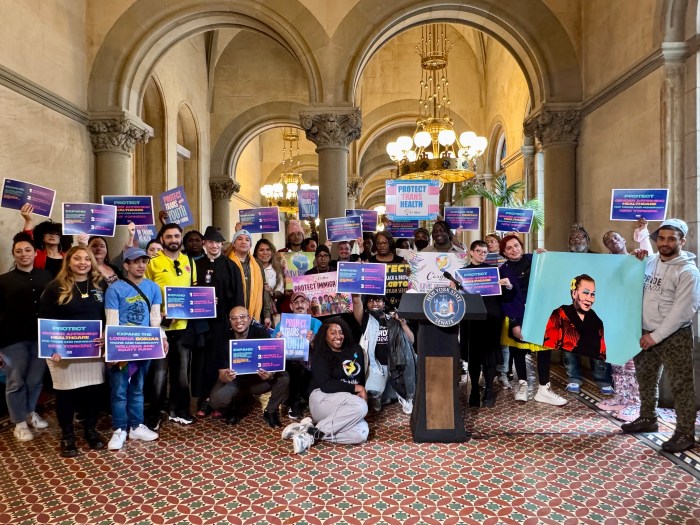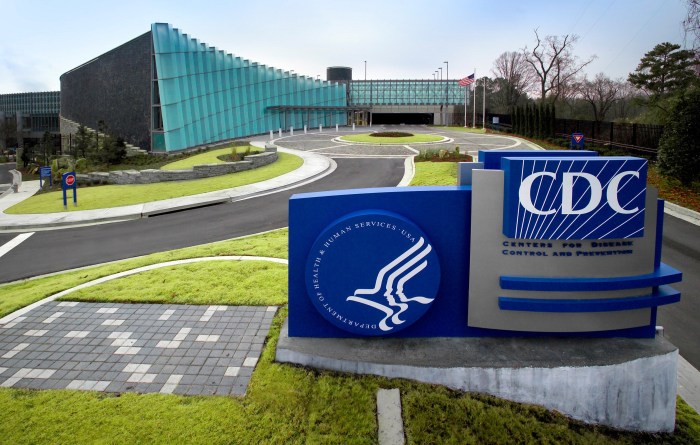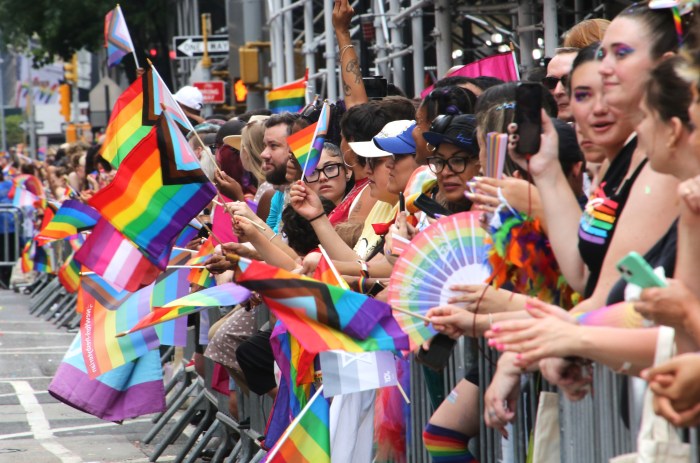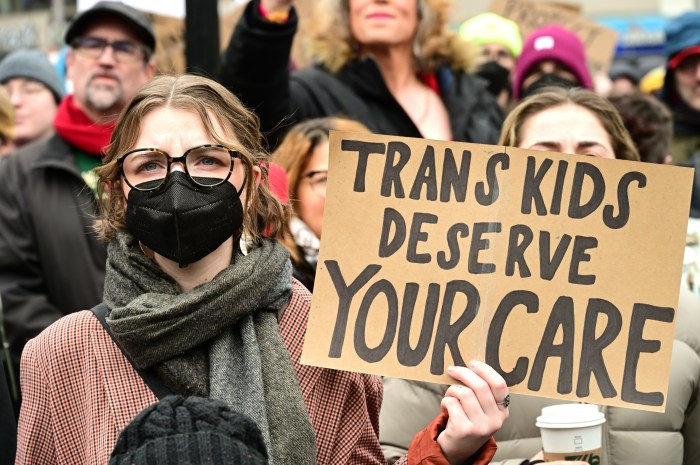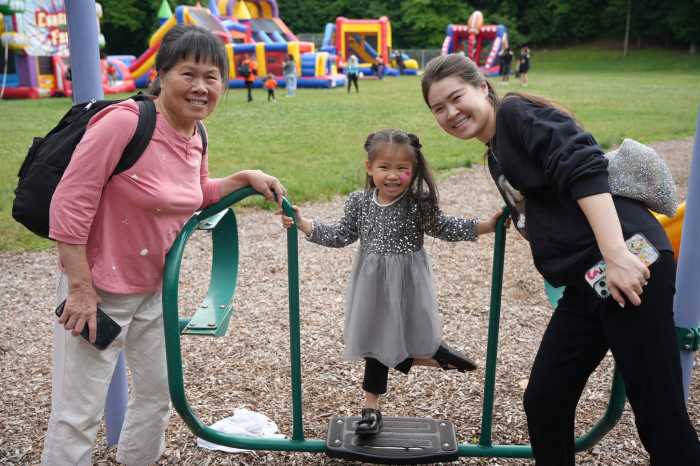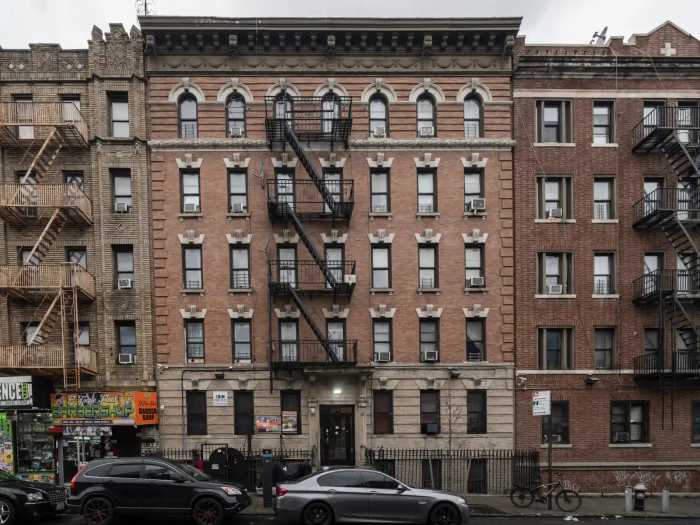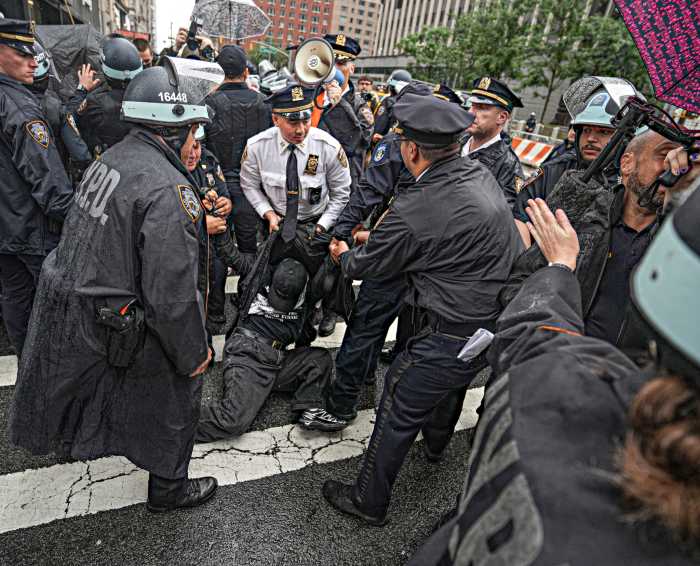New York City's health department says it currently has no plans to order vaccines in response to a spike in meningitis cases among gay and bisexual men. | WORLD HEALTH ORGANIZATION
[Editor's note: On October 4, the city health department issued a press release urging HIV-positive men with recent new intimate contacts to get vaccinated.]
Two North American cities that experienced outbreaks of invasive meningococcal disease (IMD) among gay and bisexual men immediately launched campaigns that gave thousands of men a meningitis vaccine, but New York City’s health department has known of a meningitis outbreak here for at least a year and is saying it has no plans to act against the bacteria that has killed four of the 12 gay men who caught it.
“We have not purchased 10,000 doses and have not decided to launch a campaign,” wrote Alexandra Waldhorn, the deputy press secretary at the Department of Health and Mental Hygiene (DOHMH), in a September 28 email.
Relying on a person who had knowledge of DOHMH’s internal deliberations, Gay City News published a story that day that said the agency would buy 10,000 doses of meningitis vaccine and start a campaign to vaccinate gay and bisexual men.
“Both references need to be corrected,” Waldhorn wrote. “If anything changes, we’ll be sure to let you know.”
Earlier the same day, another DOHMH spokesperson told Gay City News that the agency would be buying “some” doses of the vaccine.
And on October 1, a spokesperson for the department sent an email suggesting it is looking at a vaccine campaign.
“We are working to define the common links between people in this outbreak and, based on those links, identify who is most at risk of becoming infected and, therefore, most likely to benefit from vaccination,” wrote Jean Weinberg.
Among the 12 cases, one occurred in 2010, three occurred in 2011, and eight occurred this year, according to an alert that was distributed to health care providers on September 27. The men ranged in age from 21 to 59 and eight were HIV-positive.
Six of seven of the current cases were infected with a meningitis strain related to one that caused an outbreak among injecting drug users in New York City in 2006.
In the alert, the department wrote, “DOHMH is currently reviewing available data to determine whether there is a role for vaccination in this outbreak and will provide updated recommendations if needed.”
Separate from the alert to health care providers, DOHMH sent a press release to the media on September 27 that discussed only four of the 2012 cases and noted that one of those men had died.
The two other North American cities –– Toronto and Chicago –– that had meningitis outbreaks among gay men responded quickly with significant vaccine campaigns.
A 2003 issue of the Journal of Clinical Microbiology reported on a meningitis outbreak that killed two of six infected gay men, aged 23 to 39, in Toronto from “early May to mid-July of 2001.”
The authors reported that from July 25 through August 18 of that year, “More than 50 immunization clinics were held in a variety of locations, including bathhouses, an MSM [men who have sex with men] community center, a well-reputed sexually transmitted disease clinic, and hospital-based immunodeficiency clinics.”
Toronto health officials administered 3,850 vaccine doses free of charge during that time, and the authors concluded, “Subsequently, no further cases of IMD were reported in the MSM community.”
A 2007 issue of the same journal reported on an IMD outbreak in Chicago among six gay men, aged 27 to 42, in October of 2003. The authors reported, “To prevent additional cases, [the Chicago Department of Public Health] conducted an 8-day vaccination and prophylaxis campaign focused on patrons of MSM-oriented venues in Chicago. Campaign efforts at six sites in Chicago administered 14,267 doses of the quadrivalent meningococcal polysaccharide vaccine. Enhanced surveillance identified no additional cases.”
A 2003 report in the Windy City Times, Chicago’s gay newspaper, shows that the city responded immediately and gay businesses cooperated fully with the vaccination campaign. Three of the six men in the Chicago cluster died.
In the October 1 email from the health department, Weinberg wrote, “The size of a city does not, in and of itself, determine how many people to vaccinate.”
Terri Smith-Caronia, vice president of New York advocacy and public policy at Housing Works, an AIDS services group, told Gay City News that if the Toronto and Chicago actions were the correct public health responses to such an outbreak, New York City's response appeared to be lagging.
“If that is the actual protocol, then the department of health is very slow to respond,” she said. “I guess the question for the department of health is how bad does this have to get before you do some on the ground response?”


